OTHERLANDS COLLABORATION #22
Date: Mar. 7, 2020 • Location: Miyama, Japan
After three trains, one bus, and the final bit on foot, I arrived to the outskirts of Miyama (tourist info), a small village in the Kyoto countryside, more accurately named Miyama Kayabuki-no-Sato (map). I was on my way to visit an old friend who showed me around on my first trip to Japan. His name is Taro Inoue and he's a musical explorer, but his roots are as a bluegrass mandolinist. [To hear more about our story and how he rescued me from a botched gig, check this blog.]
I thought I was coming out just to play a few tunes with Taro, but as we brainstormed ideas on his porch, he mentioned that his partner Yukky was a great singer and suggested she join us for a song...he had one in mind. Absolutely. But before getting our instruments out, they wanted to show me around the village.
Miyama is not the easiest place to get to, but being off the beaten path is one of the reasons it's worth it. This picturesque village is located on the Yaro River and nestled among wooded mountains that echo landscapes in Appalachia. An illustrated village map greets visitors although it would be pretty difficult to get lost here. The most striking feature of this village is the traditional thatch-roofed homes. Tall and steeply sloped A-frames, thickly thatched and covered with moss, with exposed wooden bracing at what looks to be a sort of crest at the peak—the homes all seem to be oriented in the same direction. Walking into the village you see the sloped sides of every home. Once within the village and turning to the right or left, you see the peak side. It is a highly organized rural farming village.
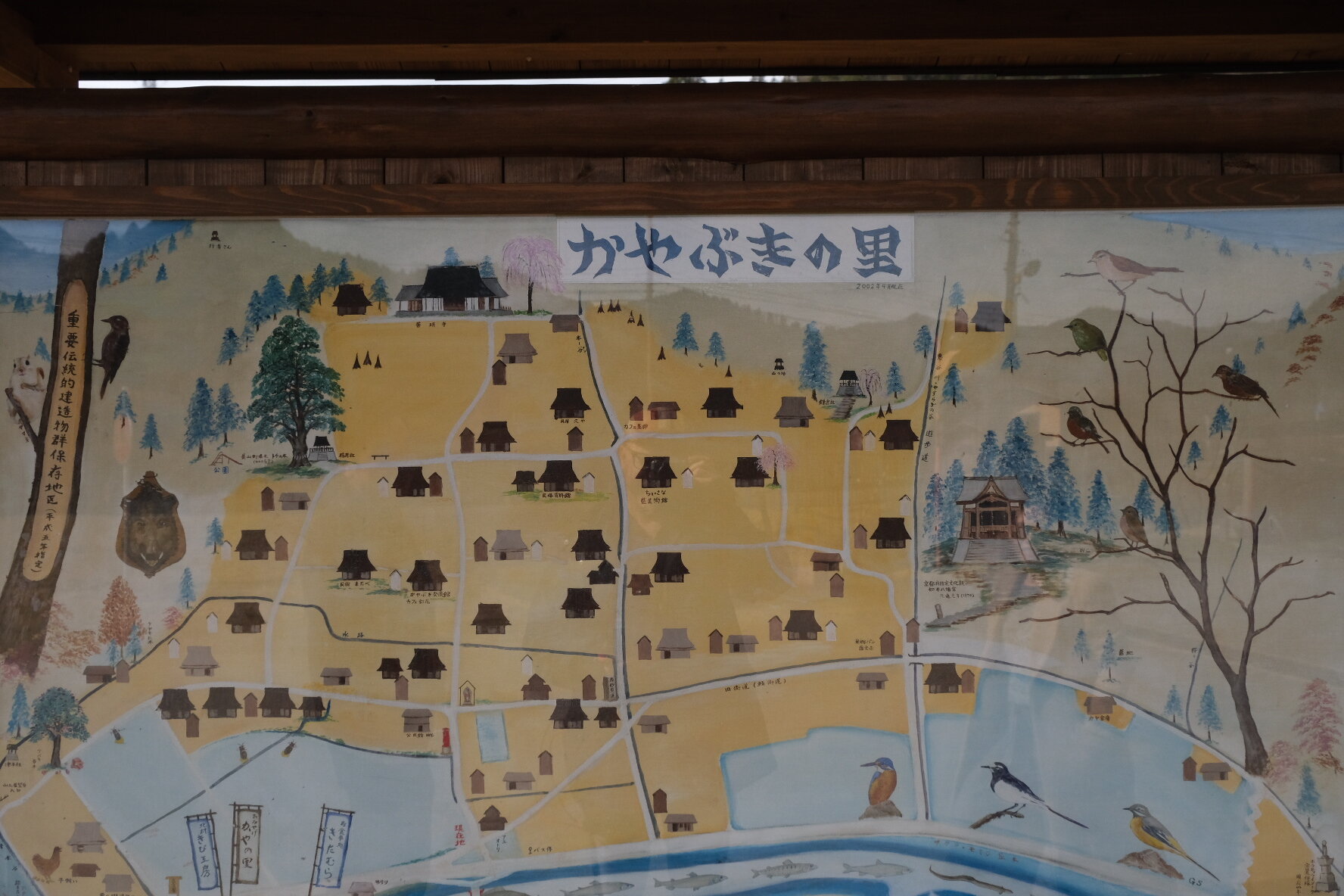
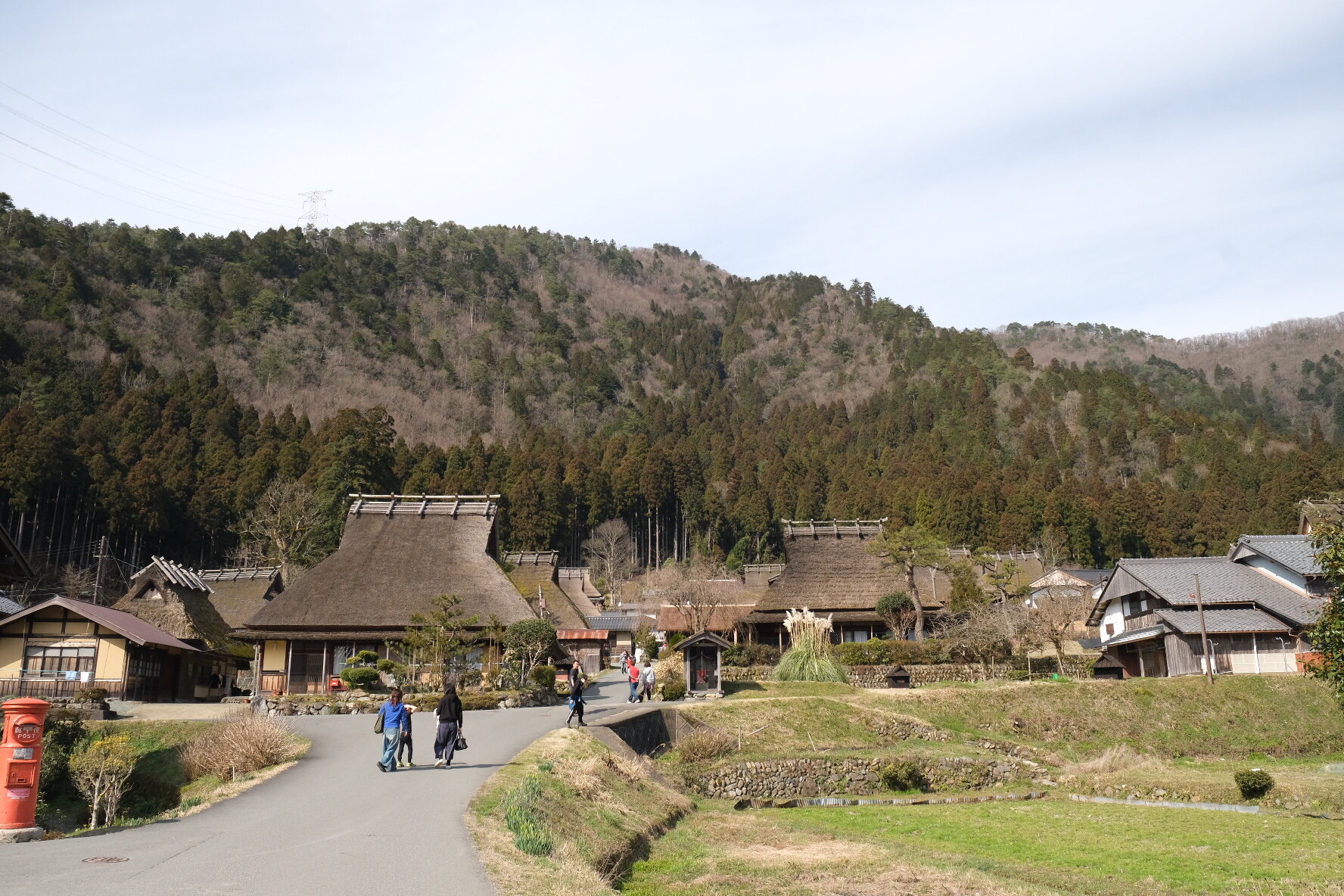
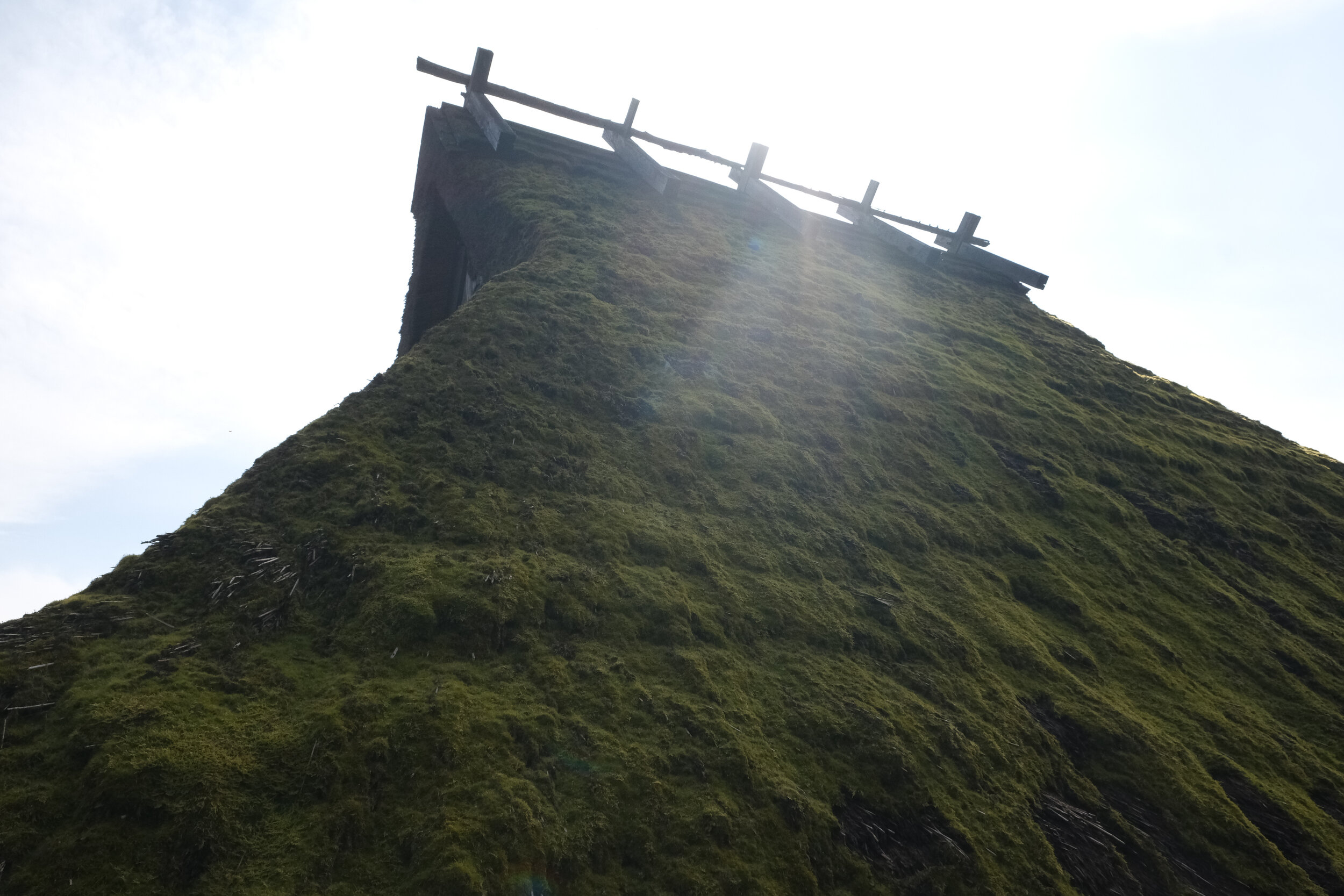
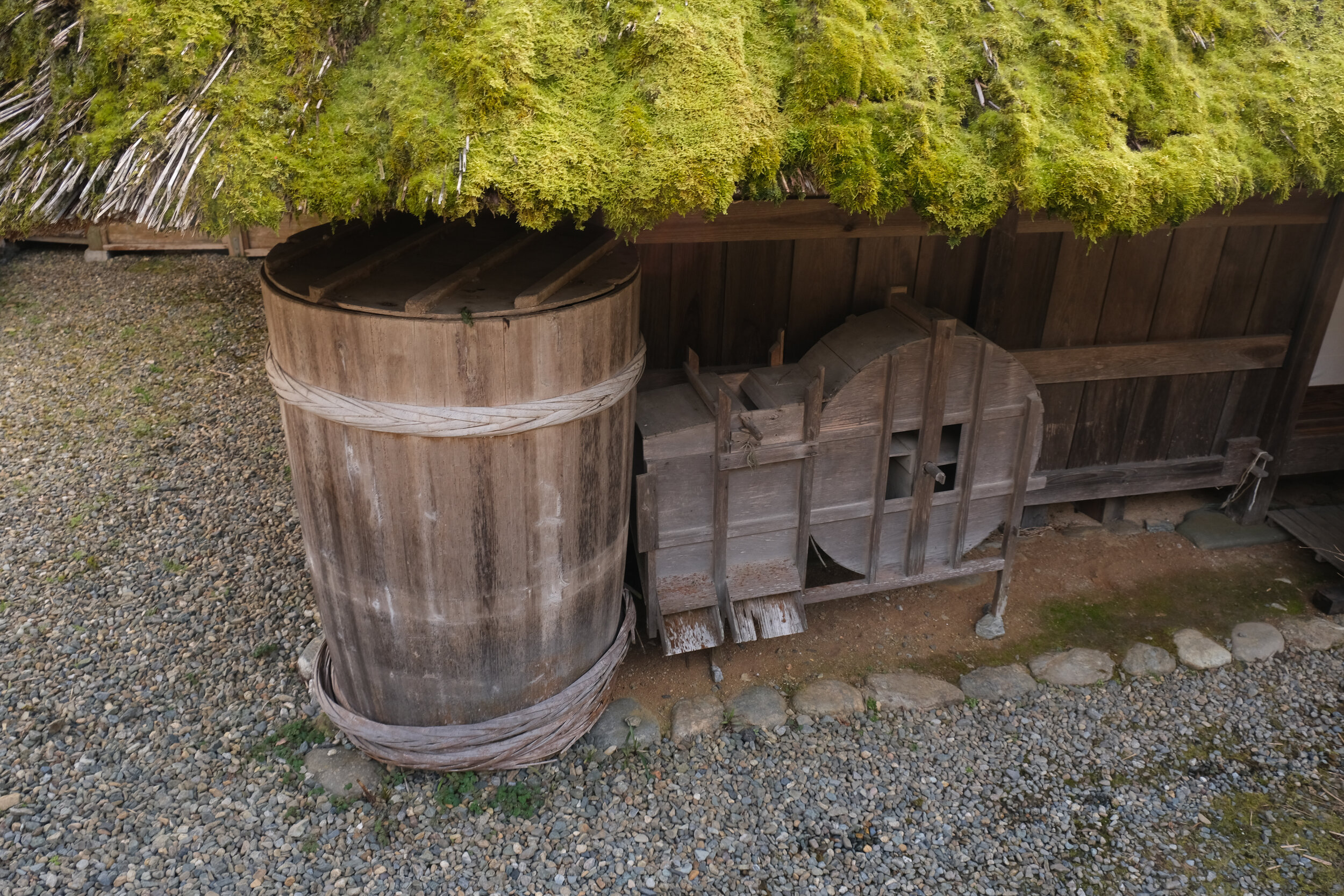
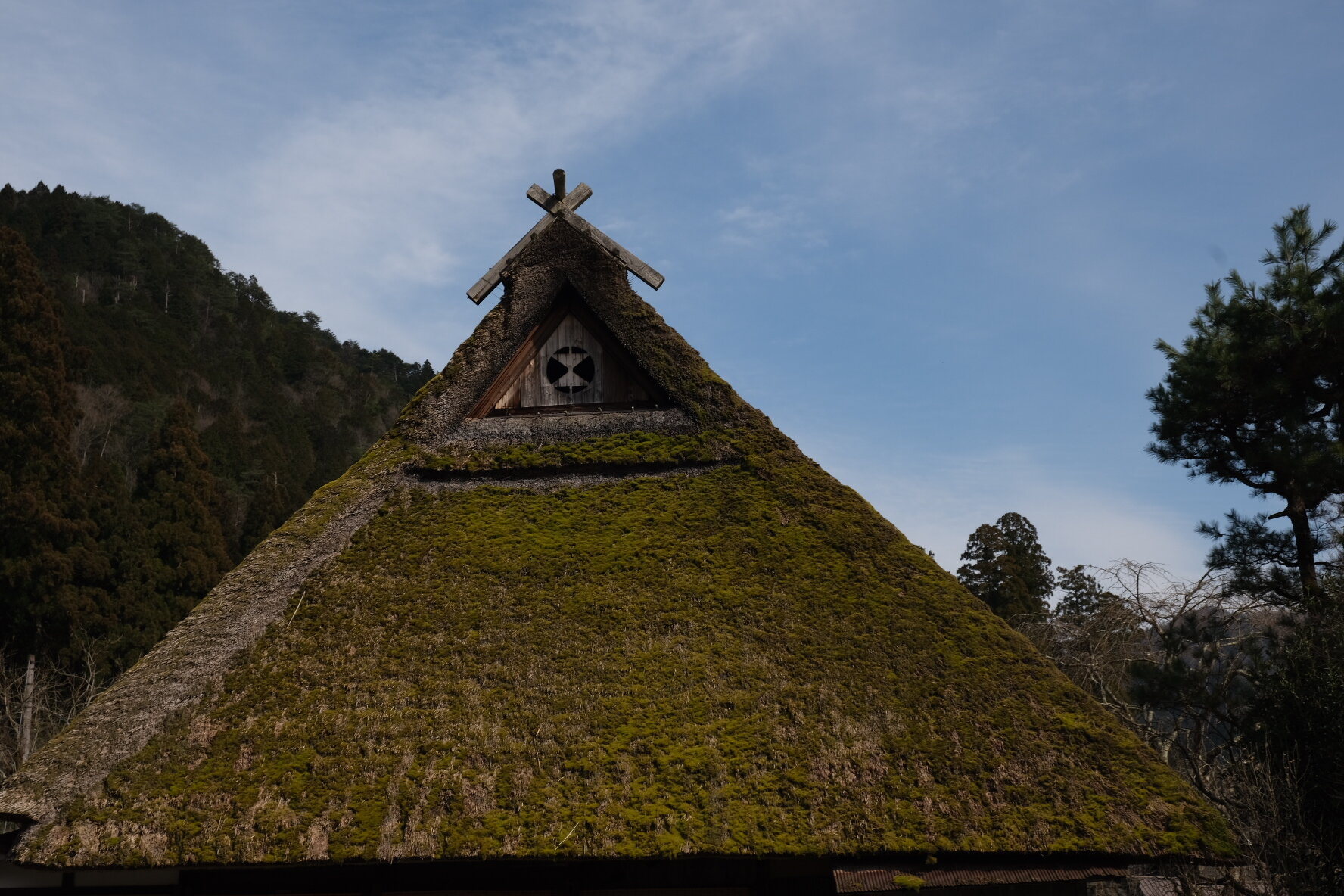
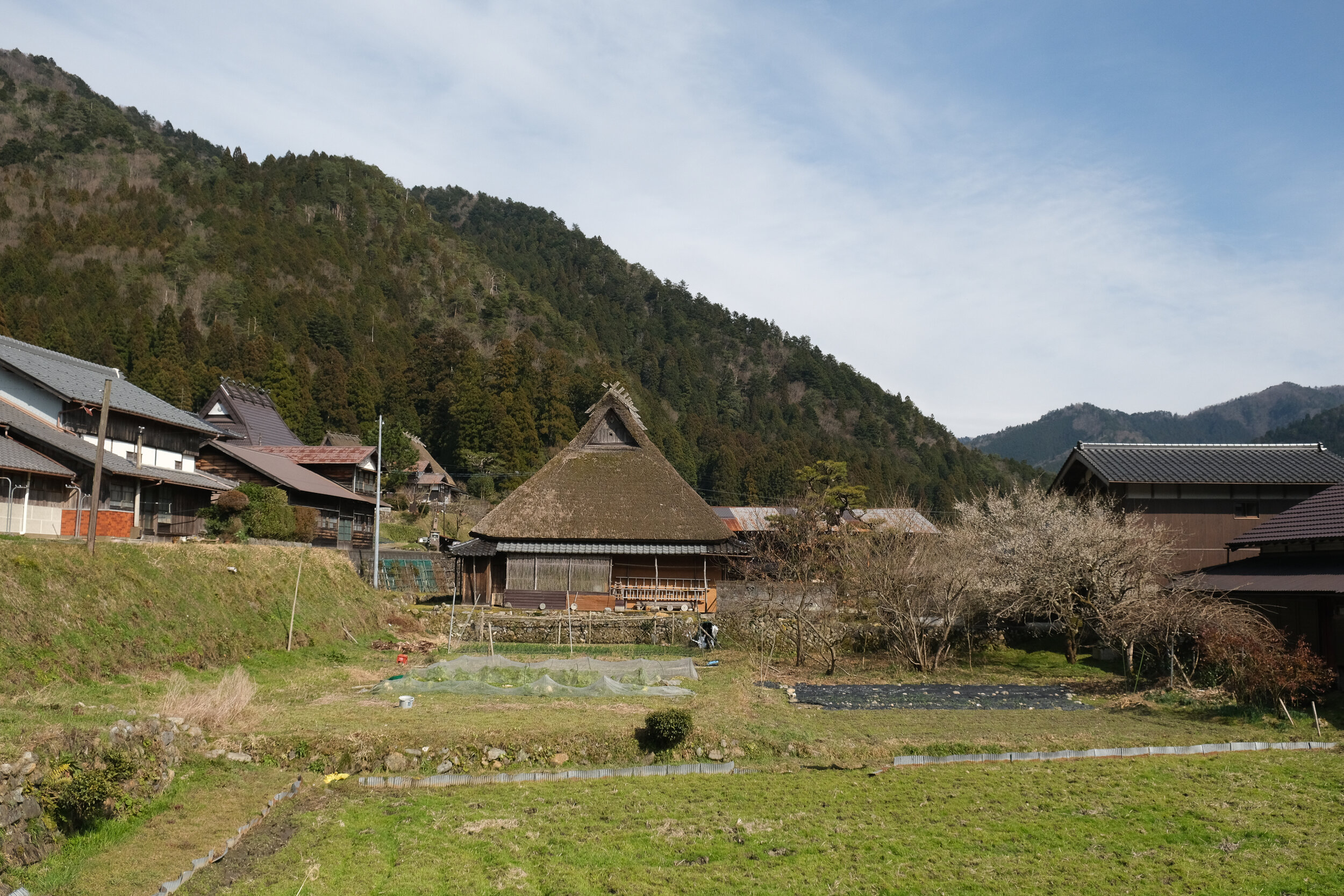
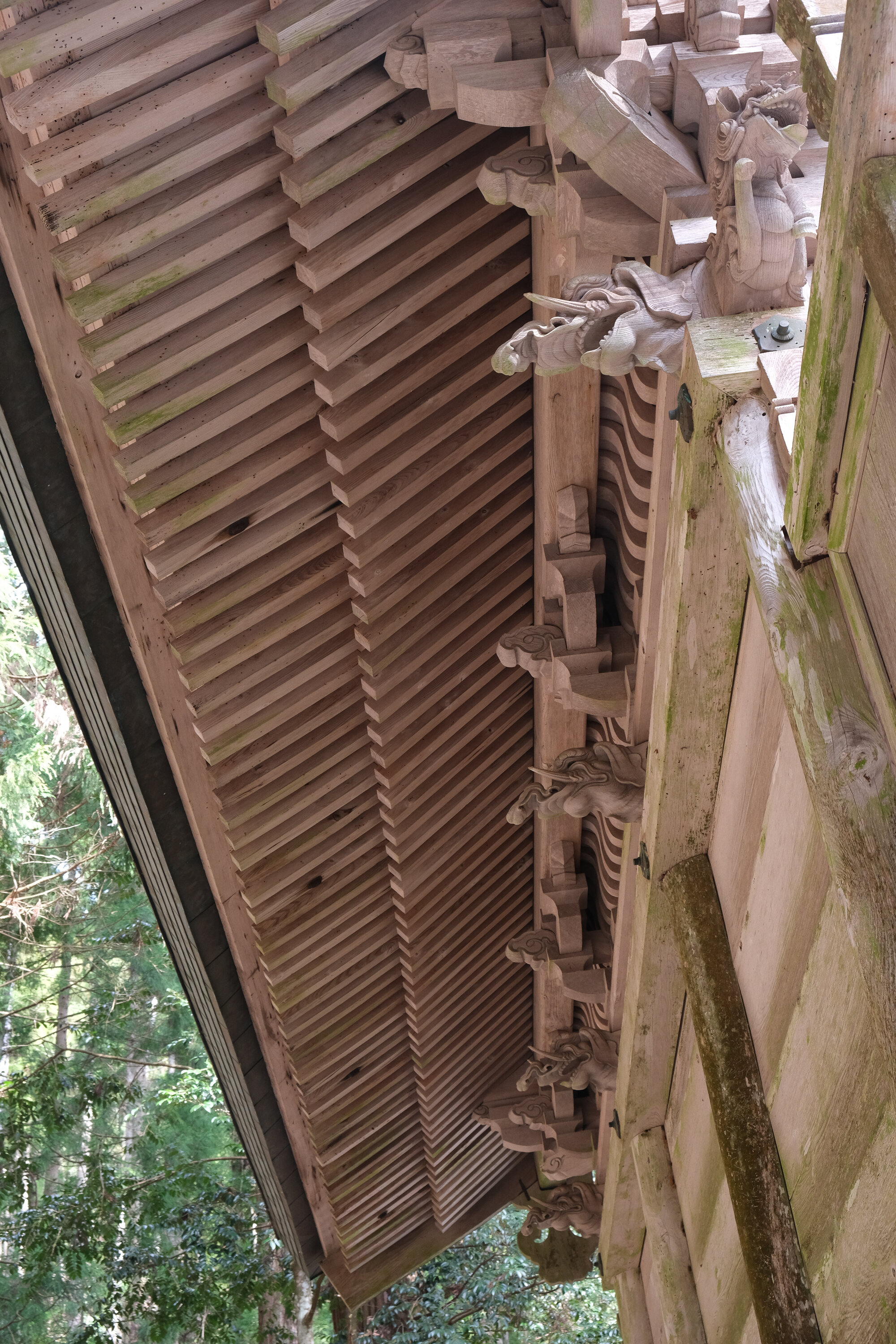
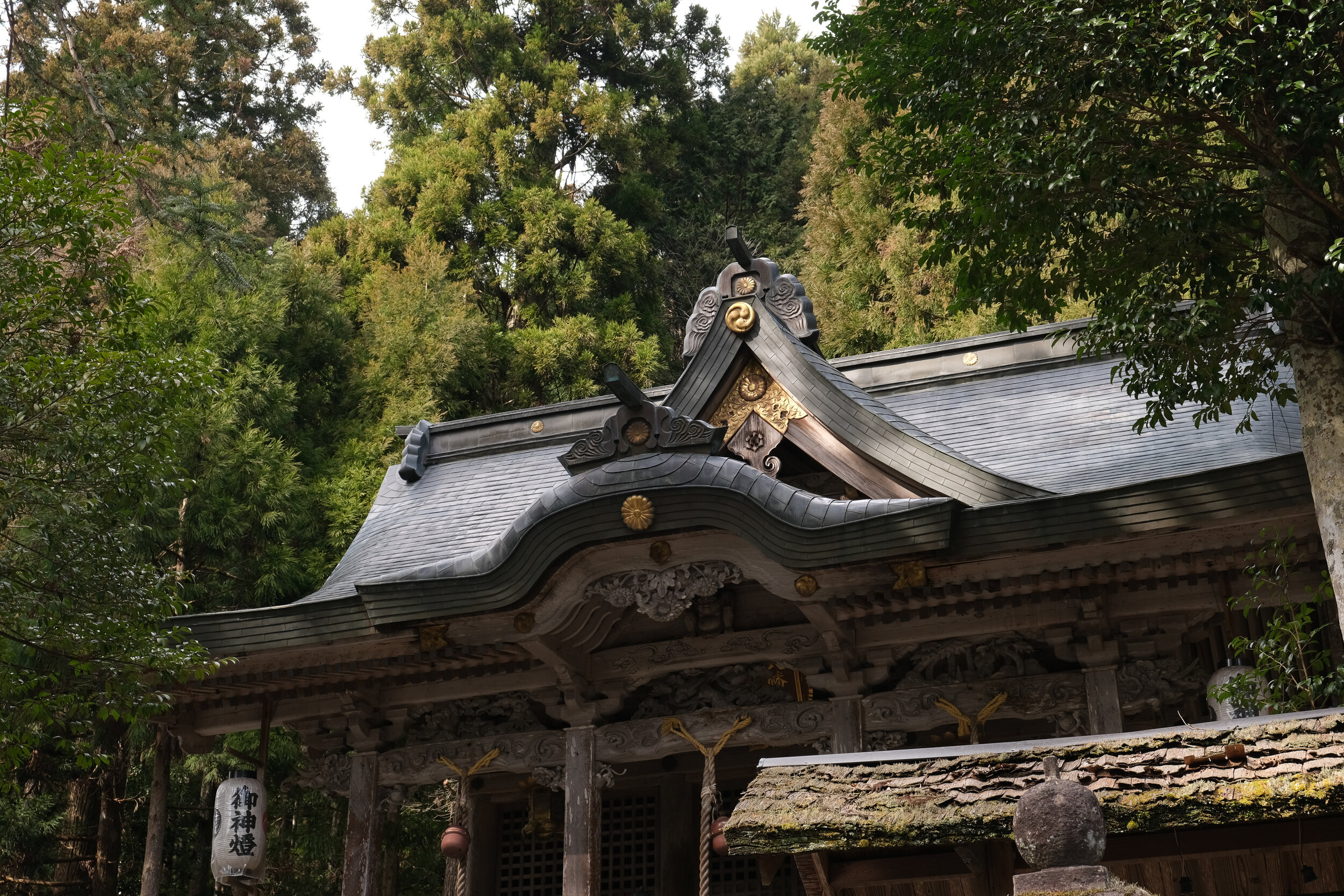
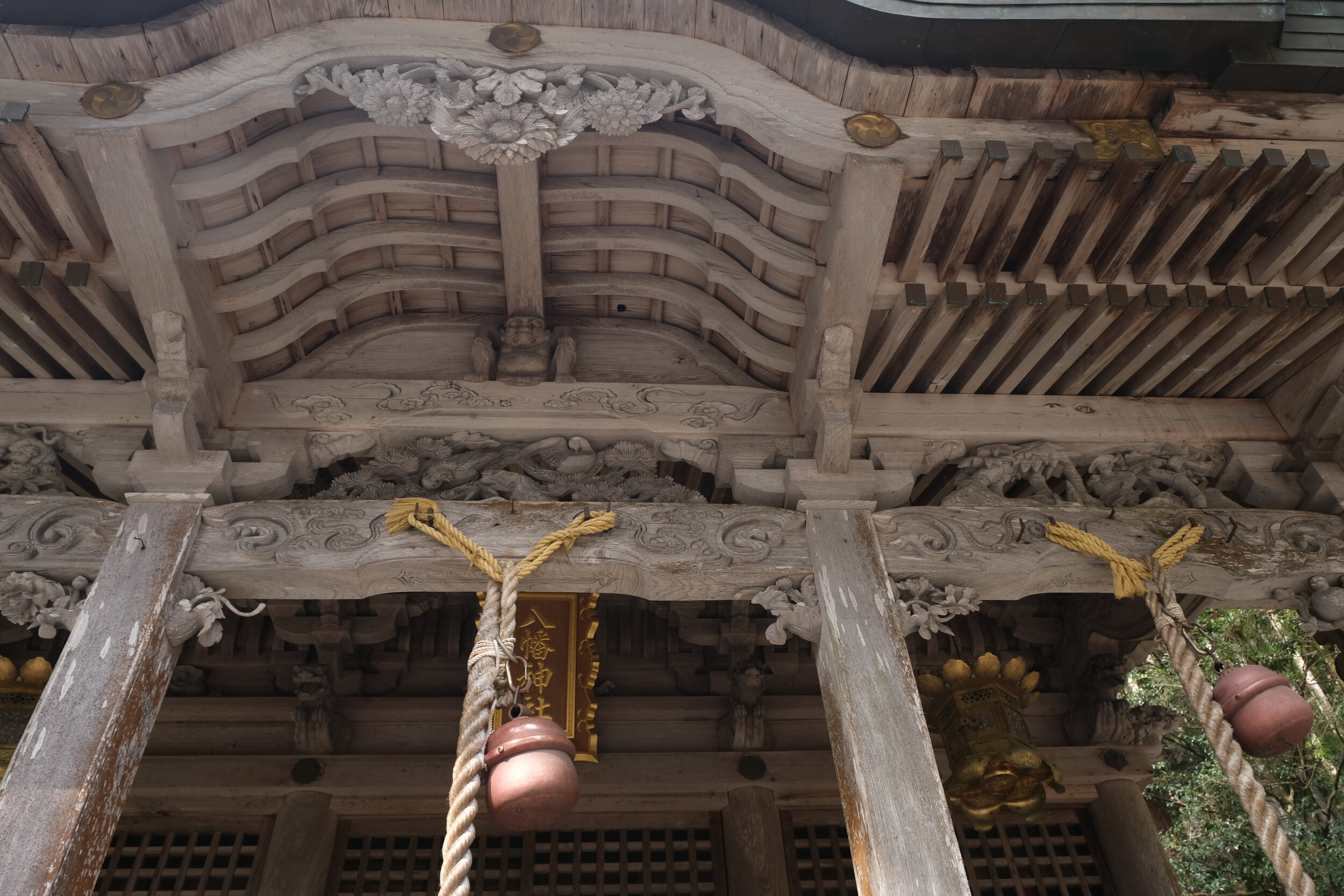
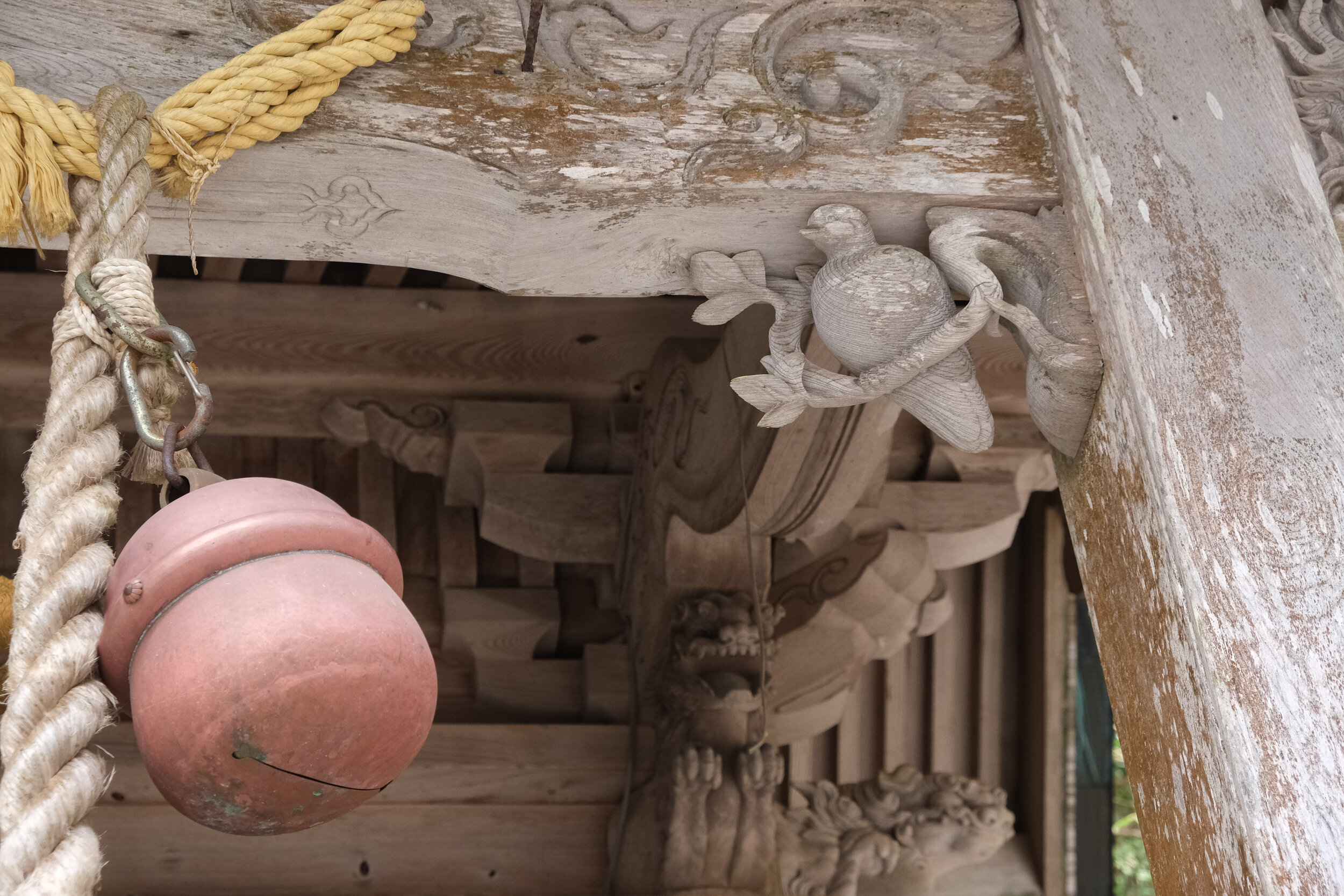
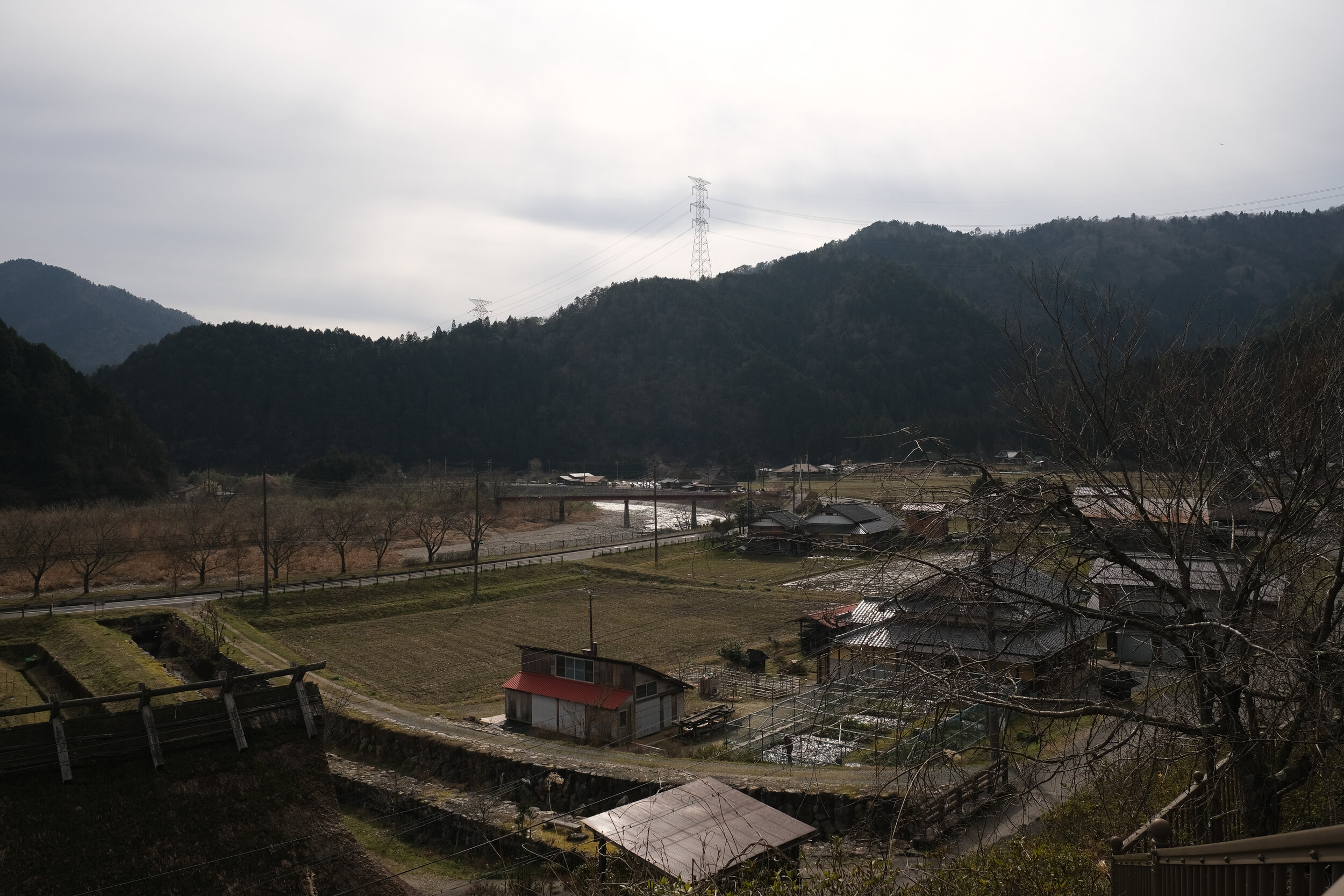
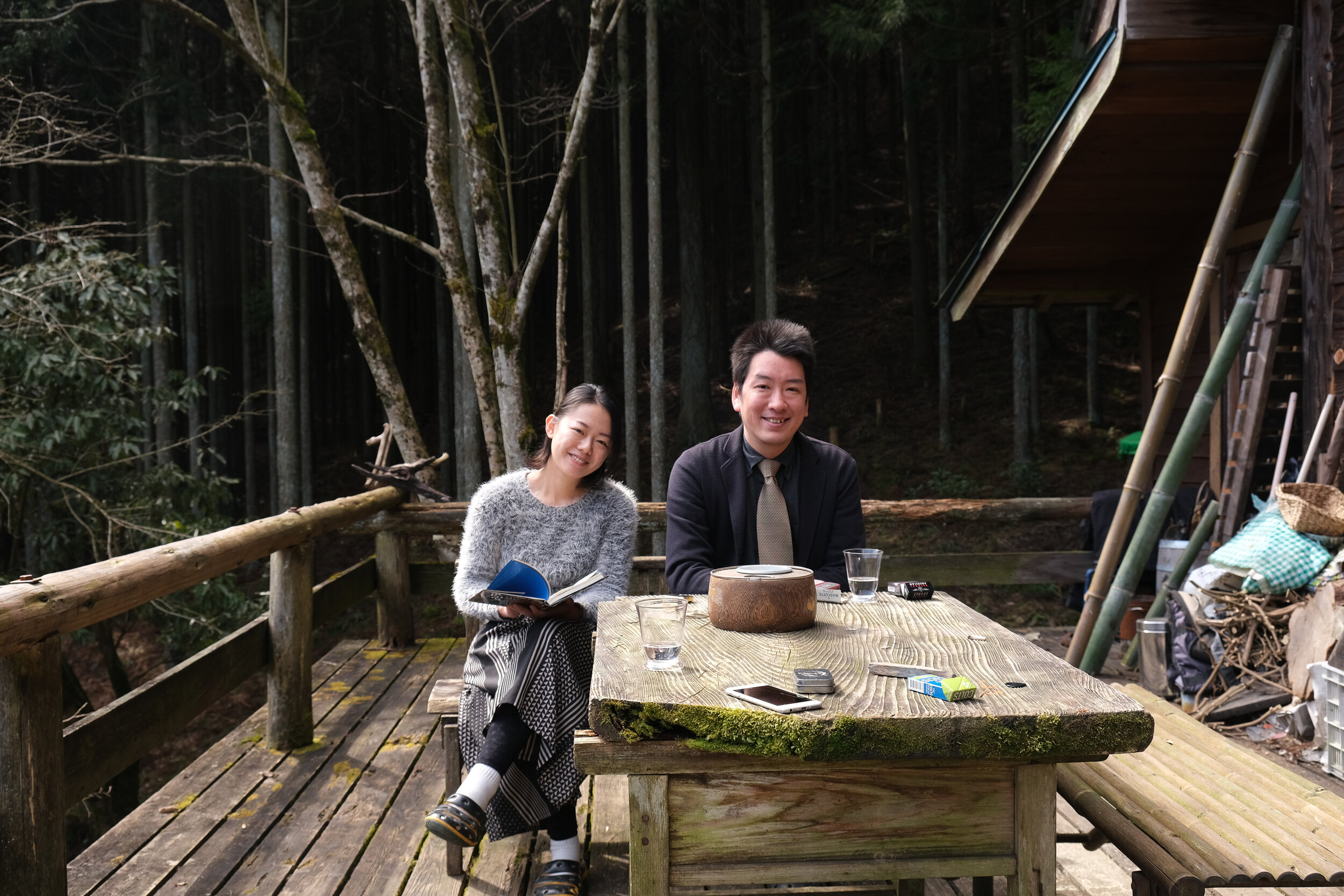
Heading out of the living zone, we come across two temples. The first consists only of a small fenced structure for making offerings. The second is much larger, with beautifully ornate and tidy wood work underneath a curved roof, in contrast to the thatched homes. One detail that stands out to me is that this larger temple is unpainted and natural wood, whereas all the other temples I've seen on my trip, while having a similar wood work, have been highly painted or darkly stained. On our way out of the temple, I spot my spirit animal, the tanuki, and smile.
Our walk concludes with a stop for lunch at a farm-to-table cafe, delicious hot green tea, and then it's back to the house for music.
After Taro and I play a mando/fiddle duet (see our collaboration here), it's time to reset for our trio. While I shift around mics and cameras, Yukky and Taro start rehearsing a Japanese song, and it's so well chosen. It's written by a born-and-bred resident of Miyama named Noriaki Noguchi and is about this village I was just enjoying today.
In Taro's paraphrased words: "It's about a guy born in this village. He's getting old and will die soon. He has lots of beautiful childhood memories of this mountain village where the rice fields are golden and enough fish were in the river. But now, it's much less and there are empty rice fields that nobody is working on. He's sad and he loves this beautiful village. He wonders if he can pass it on to the next generation—the beauty of this village."
As we start to play, we notice melodic ideas reminiscent of the duet Taro and I just played, a bluegrass standard called "Little Cabin Home on the Hill." Since we're in Taro & Yukky's little cabin, we decide to merge our worlds and use inspirational bits of the bluegrass song in the instrumental sections. Yukky's voice is lovely to listen to and accompany—relaxed, full, and expressive. Playing together is rather effortless and once I have the form down, I'm mainly worried about playing too loud in Yukky's ear since we're all so close to each other. After three takes, we're satisfied. They tell me that Noriaki Noguchi is still living in Miyama and that he'll be happy to hear our version of his song. After only a few hours in his village, I also love it here and hope to help pass the beauty onward.
Before the night is over, Taro pulls out a poster he wants to show me. It's a publicity poster of a bad-ass looking woman, dressed all in white, wearing a white electric guitar. It's cool but I'm not quite sure why he's showing me this...and then he reveals it's rock star Yukky.
Yukky & Taro on the porch of their Little Cabin Home on the Hill
CREDITS
Song: Kono Murade Umarete (Noriaki Noguchi)
Music Arranged by: Casey Driessen, Yukky, Taro Inoue
Voice: Yukky
Mandolin: Taro Inoue
Fiddle, Audio & Video: Casey Driessen

